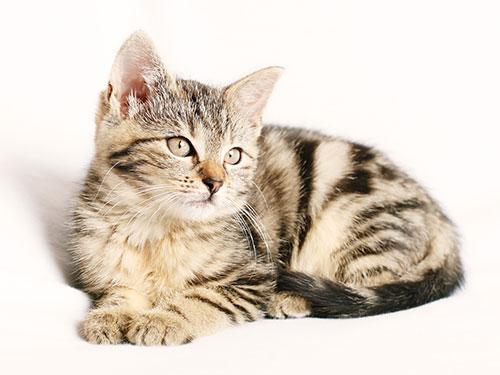
Cytauxzoonosis in Cats
Monday, May 1, 2017
Cytauxzoonosis is an acute, frequently fatal disease in cats caused by the red blood cell parasite, Cytauxzoon felis. Cytauxzoonosis is a devastating disease that often strikes previously healthy, young adult cats with outdoor exposure.
Approximately two weeks following transmission of the pathogen, the cat will become anorexic and depressed. A high fever, anemia, respiratory signs, and icterus or jaundice (yellowing of the skin) are common.
The cat essentially develops protozoal sepsis, characterized by severe systemic inflammation, which may include high temperature, increased heart rate and/or respiratory rate, and abnormal blood cell counts.
The condition is often complicated by disseminated intravascular coagulation (the inappropriate formation of blood clots), which can result in multiple organ failure, and over time, an increased risk of bleeding. Without treatment, death typically follows within five days of the first signs of illness.
Because the organism that causes infection is not a standard bacteria, ordinary antibiotics are not a suitable treatment choice. However, recently a combination of an antimalarial drug (atovaquone) and an antimicrobial (azithromycin) has been demonstrated to result in survival of up to 60 percent of treated cats when used along with supportive care.
Cytauxzoonosis is transmitted by the Lone Star tick (Amblyomma americanum) and has a seasonal predisposition to spring, summer and fall. There are usually two waves starting in late March or early April through June and again in August through September.
The best defense against cytauxzoonosis in cats is to use a tick preventative year round if your cat has outdoor access.
by Laura Nafe, DVM, MS, Dipl. American College of Veterinary Internal Medicine (Small Animal Internal Medicine)
Veterinary Viewpoints is provided by the faculty of the OSU Veterinary Medical Hospital. Certified by the American Animal Hospital Association, the hospital is open to the public providing routine and specialized care for all species and 24-hour emergency care, 365 days a year.
